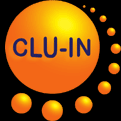Incremental Sampling Methodology (ISM-2) Update Training Modules
Sponsored by: Interstate Technology and Regulatory Council
ITRC's archived two sessions (Session 1 for Module 1-3 or Session 2 for Module 4-6) cover an overview of ISM and present five sections from the ITRC guidance document (ISM-2, 2020). You are welcome to watch a single module below:
- Module 0: ISM-2 Update Introduction
- Module 1: ISM Overview (ISM-2 Update, Section 1)
- Module 2: Heterogeneity (ISM-2 Update, Section 2)
- Module 3: Statistics, Data Use Planning, and Data Quality Evaluation (ISM-2 Update, Section 3.2; 3.3; 6)
- Module 4: Field Sampling Collection (ISM-2 Update, Section 4)
- Module 5: Lab Preparation (ISM-2 Update, Section 5)
- Module 6: Risk Assessment (ISM-2 Update, Section 8)
- ITRC Expert Panel Roundtable October 4, 2022
Accessibility, Recording, and Content Disclaimer
Rehabilitation Act Notice for Reasonable Accommodation
It is EPA's policy to make reasonable accommodation to persons with disabilities wishing to participate in the agency's programs and activities, pursuant to the Rehabilitation Act of 1973, 29 U.S.C. 791. Any request for accommodation should be made to the ITRC Training Program at 202-266-4932 or itrc@itrcweb.org, preferably one week or more in advance of the webinar, so that EPA will have sufficient time to process the request. EPA would welcome specific recommendations from requestors specifying the nature or type of accommodation needed. Please note that CLU-IN provides both alternate phone call-in options and closed captioning for all webinars, and requests for these specific accommodations are not necessary.
Webinar Recording
By participating in this CLU-IN webinar, you automatically agree to authorize recording of audio and visual content presented during this live event and consent to subsequent use of this recording in the public domain by the U.S. Environmental Protection Agency. This recording may include questions, comments and poll responses provided by you during the live event in addition to your name, voice, image or likeness. This recording will be made available after the conclusion of the live event as part of the CLU-IN webinar archives, and will remain available indefinitely. If you do not wish to consent to the recording, please do not join the live event, and contact Jean Balent at 202-566-0832 or balent.jean@epa.gov to discuss your concerns.
Content Disclaimer
This webinar is intended solely to provide information to the public. The views and opinions expressed as part of this webinar do not necessarily state or reflect those of the U.S. Environmental Protection Agency. It is not intended, nor can it be relied upon, to create any rights enforceable by any party in litigation with the United States, or to endorse the use of products or services provided by specific vendors. With respect to this webinar, neither the United States Government nor any of their employees, makes any warranty, express or implied, including the warranties of merchantability and fitness for a particular purpose, or assumes any legal liability or responsibility for the accuracy, completeness, or usefulness of any information, apparatus, product, or process disclosed, or represents that its use would not infringe privately owned rights.
Panelists/Responders for Session 1: Introduction to ISM, Heterogeneity, and Statistical Applications to ISM Planning & Evaluation (Modules 1-3)
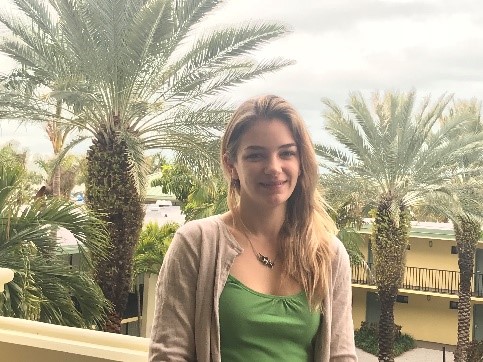 Caroline Jalenti, NYDEC
Caroline Jalenti, NYDEC
Session 1: Introduction
Caroline Jalanti received her B.S in Environmental Engineering from Worcester Polytechnic Institute and was recognized within the Environmental Engineering Department for her research into remedial technology advancements for the emerging contaminant 1,4-Dioxane. Caroline has been working as an Environmental Engineer with the New York State Department of Environmental Conservation (NYSDEC) since 2014. During her time with NYSDEC, Caroline has worked on various investigation and remediation projects across multiple state programs including: State Superfund, Brownfield Cleanup Program, and Petroleum Response.
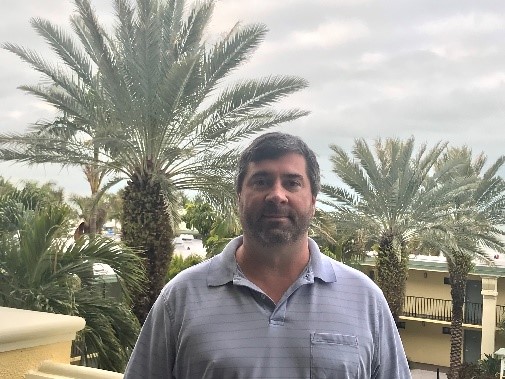 Troy Keith, PG, TNDEC
Troy Keith, PG, TNDEC
Session 1: Introduction
Troy Keith, PG, has been working as a geologist in the environmental industry for thirty years, with the last 20 being with the Tennessee Department of Environment and Conservation, Division of Remediation. Mr. Keith has worked on investigation and remediation of numerous active and inactive DoD sites, NPL sites and State Superfund sites. In addition to traditional CERCLA and RCRA work, Mr. Keith has extensive experience with regional implementation and administration of the DoR's Voluntary Oversight and Assistance Program (Brownfield Program) for the Southeast Tennessee region.
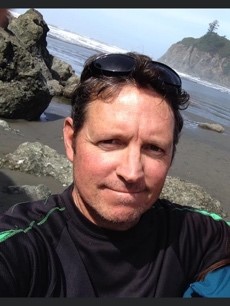 Jason Brodersen, PG, Tetra Tech
Jason Brodersen, PG, Tetra Tech
Session 1: Module 1
Jason Brodersen, PG, is a Geophysicist and California Professional Geologist with over 32 years of professional environmental consulting experience, including 30 years with Tetra Tech. He has been a Project and Program Manager for complex environmental investigation and cleanup projects, due diligence, guaranteed fixed price remediation, and Phase I and II environmental assessment projects. Mr. Brodersen has managed over 150 environmental projects with a combined value of more than $50 million. Mr. Brodersen also provides technical and contract quality assurance and quality control review for projects nationwide within Tetra Tech. Over the past 16 years, Mr. Brodersen has emerged as a nationwide expert in the development, training, and implementation of Incremental Sampling Methodology (ISM) at hundreds of projects throughout the US. Mr. Brodersen was heavily involved in development of the State of Hawaii ISM technical guidance and oversaw some of the first ISM investigations in that state. He has provided trainings and workshops in California to EPA, CalEPA, DTSC, RWQCB, California Department of Health Services, and other regulators and stakeholders as the method gains acceptance with regulators.
 Chris Christensen, MI EGLE
Chris Christensen, MI EGLE
Session 1: Module 1
Chris Christensen, is an Environmental Hydrogeologist with the Michigan Department of Environment, Great Lakes and Energy (EGLE), Remediation and Redevelopment Division (RRD), in Grand Rapids since 1992. Chris works on both leaking underground storage tank sites as well as chlorinated solvent and surficial soil contamination sites. He is on RRD Technical Teams related to Incremental Sampling, Non-Aqueous Phase Liquids, Risk-based Corrective Action and Groundwater Modeling. He has advocated for Incremental Sampling use in Michigan since 2011; and contributed as a member of the ITRC ISM-2 team. Chris has a B.S. in Geology from Michigan State University, and an M.S. in Hydrogeology from Western Michigan University.
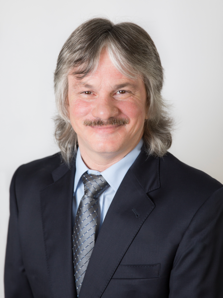 Thomas Maher, PG, Civil & Environmental Consultants, Inc.
Thomas Maher, PG, Civil & Environmental Consultants, Inc.
Session 1: Module 2
Thomas L. Maher, Jr., P.G., has worked for Civil & Environmental Consultants, Inc. (CEC) in Pittsburgh, Pennsylvania, since September 1991. He is a Vice President with CEC and serves as the company's Corporate Environmental Practice Lead. Tom is also a co-founder of CEC's Technical Advisory Group, which was created to keep CEC at the forefront of technology issues important to clients. He has more than 35 years of diverse environmental compliance, investigation, and remediation experience and has worked on a wide variety of sites under the Comprehensive Environmental Response, Compensation, and Liability Act (CERCLA), the Resource Conservation and Recovery Act (RCRA), the Toxic Substances Control Act (TSCA), and various state-led programs. He has successfully completed projects across the country, as well as in Canada, leading teams of engineers, geologists, ecologists, and risk assessors. He has direct experience working with small to very large companies ranging from routine environmental compliance to complex, legacy industrial sites requiring in-depth knowledge of state and federal regulations and detailed negotiations with regulators and various outside stakeholders. Tom earned a bachelor's degree in Geology from the University of Pittsburgh in 1985; and is a registered Professional Geologist in the Commonwealth of Pennsylvania and the State of Arkansas.
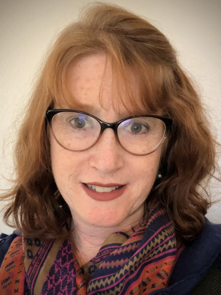 Michele Zych, PG, Wood PLC
Michele Zych, PG, Wood PLC
Session 1: Module 2
Michele Zych, P.G. has worked for the environmental consulting industry in southern California since 1992. She is currently with Wood Environment & Infrastructure Solutions, Inc. (Wood) in San Diego, California, as an Associate Project Manager, managing and providing technical oversight for environmental restoration projects in California and Arizona, under the Comprehensive Environmental Response, Compensation, and Liability Act (CERCLA), the Resource Conservation and Recovery Act (RCRA) and Cleanup and Abatement Orders issued by the California Regional Water Quality Control Boards. She has directed investigations at former range sites, industrial and manufacturing facilities, former aerospace testing facilities, Superfund sites, and Brownfields for both the Department of Defense, private sector companies and real estate developers. She has managed multi-phase, long term projects from site inspections, preliminary assessments, remedial investigations and risk assessments, feasibility studies, and remedial design and implementation, all working with various agencies including Region 9 US EPA, California Department of Toxic Substances Control, California Regional Water Quality Control Boards, United States Fish and Wildlife Services, and California Department of Fish and Wildlife for the protection of human health and the environment. Ms. Zych has been working with the ITRC on the Incremental Sampling Methodology Update since 2018, where she has executed several ISM sampling designs at former range sites and facilities with historical use of arsenic-based herbicides. Michele earned a bachelor's degree in Geology from the California State Polytechnic University, Pomona, in 1992, and is a registered Professional Geologist in the State of California.
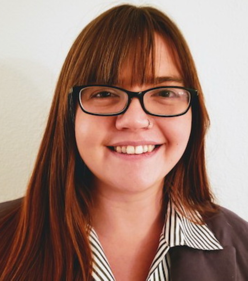 Hayley Brittingham, Neptune and Company
Hayley Brittingham, Neptune and Company
Session 1: Module 3
Hayley Brittingham has worked for the environmental consulting industry in southern California since 1992. She is currently with Wood Environment & Infrastructure Solutions, Inc. (Wood) in San Diego, California, as an Associate Project Manager, managing and providing technical oversight for environmental restoration projects in California and Arizona, under the Comprehensive Environmental Response, Compensation, and Liability Act (CERCLA), the Resource Conservation and Recovery Act (RCRA) and Cleanup and Abatement Orders issued by the California Regional Water Quality Control Boards. She has directed investigations at former range sites, industrial and manufacturing facilities, former aerospace testing facilities, Superfund sites, and Brownfields for both the Department of Defense, private sector companies and real estate developers. She has managed multi-phase, long term projects from site inspections, preliminary assessments, remedial investigations and risk assessments, feasibility studies, and remedial design and implementation, all working with various agencies including Region 9 US EPA, California Department of Toxic Substances Control, California Regional Water Quality Control Boards, United States Fish and Wildlife Services, and California Department of Fish and Wildlife for the protection of human health and the environment. Ms. Zych has been working with the ITRC on the Incremental Sampling Methodology Update since 2018, where she has executed several ISM sampling designs at former range sites and facilities with historical use of arsenic-based herbicides. Michele earned a bachelor's degree in Geology from the California State Polytechnic University, Pomona, in 1992, and is a registered Professional Geologist in the State of California.
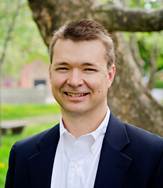 Philip Goodrum, Ph.D., GSI Environmental
Philip Goodrum, Ph.D., GSI Environmental
Session 1: Module 3
Philip Goodrum is a board-certified Toxicologist and Ecologist with GSI Environmental Inc. He has 30 years of experience as an environmental consultant in the health and environmental science fields, working on behalf of both government and private sector clients. Dr. Goodrum has served on national science advisory panels for USEPA and the Department of Defense as an expert in statistical sampling methods for site characterization, probabilistic modeling, and lead risk assessment. He has published several white papers and peer-reviewed manuscripts on ISM sampling designs and statistical analysis methods, and twice received ITRC's annual industry affiliation recognition award for contributions to the ITRC ISM team. He enjoys teaching, and currently is a visiting instructor at SUNY College of Environmental Science and Forestry, where he teaches an undergraduate course in environmental risk assessment.
Panelists/Responders for Session 2: Field Sample Collection, Incremental Sample Processing & Analysis, and ISM for Risk Assessment (Modules 4-6)
 Caroline Jalenti, NYDEC
Caroline Jalenti, NYDEC
Session 2: Introduction
Caroline Jalanti received her B.S in Environmental Engineering from Worcester Polytechnic Institute and was recognized within the Environmental Engineering Department for her research into remedial technology advancements for the emerging contaminant 1,4-Dioxane. Caroline has been working as an Environmental Engineer with the New York State Department of Environmental Conservation (NYSDEC) since 2014. During her time with NYSDEC, Caroline has worked on various investigation and remediation projects across multiple state programs including: State Superfund, Brownfield Cleanup Program, and Petroleum Response.
 Troy Keith, PG, TNDEC
Troy Keith, PG, TNDEC
Session 2: Introduction
Troy Keith, PG, has been working as a geologist in the environmental industry for thirty years, with the last 20 being with the Tennessee Department of Environment and Conservation, Division of Remediation. Mr. Keith has worked on investigation and remediation of numerous active and inactive DoD sites, NPL sites and State Superfund sites. In addition to traditional CERCLA and RCRA work, Mr. Keith has extensive experience with regional implementation and administration of the DoR's Voluntary Oversight and Assistance Program (Brownfield Program) for the Southeast Tennessee region.
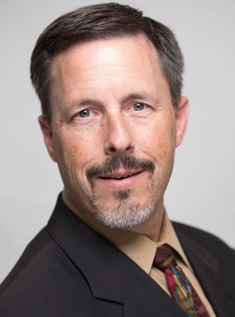 Todd Miller, Kennedy/Jenks Consultants
Todd Miller, Kennedy/Jenks Consultants
Session 2: Module 4
Todd Miller is a Senior Hydrogeologist and Vice President with Kennedy/Jenks Consultants, Inc., in Walnut Creek, CA. Mr. Miller has 33 years of professional experience in investigating and remediating a wide variety of contaminated sites. In his current role, he provides technical and managerial oversite of staff, and manages projects for several large industrial and municipal clients. His technical expertise includes hydrogeologic studies, chemical fate and transport, contaminated groundwater characterization and remediation, characterization and remediation strategy development and implementation, and regulatory interaction/negotiation. He earned a bachelor's degree in Oceanography from Humboldt State University in 1987, and in Geology in 1989. He is a registered Professional Geologist in California and Oregon and a Certified Hydrogeologist in California.
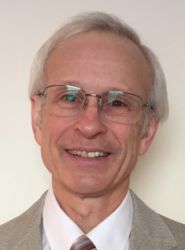 Mark Bruce, Ph.D., Eurofins
Mark Bruce, Ph.D., Eurofins
Session 2: Module 5
Mark Bruce is a Corporate Technical Director for Eurofins Environment Testing America. He has experience in environmental monitoring including sample preparation and analysis since 1979. He has participated in the development of several EPA methods. In conjunction with the Army Corps of Engineers, he has investigated and developed tools for ISM sample processing. He has been active on both Interstate Technology and Regulatory Council ISM teams (2012 and 2020). Mark earned a Ph.D. in Analytical Chemistry from the University of Cincinnati in 1984.
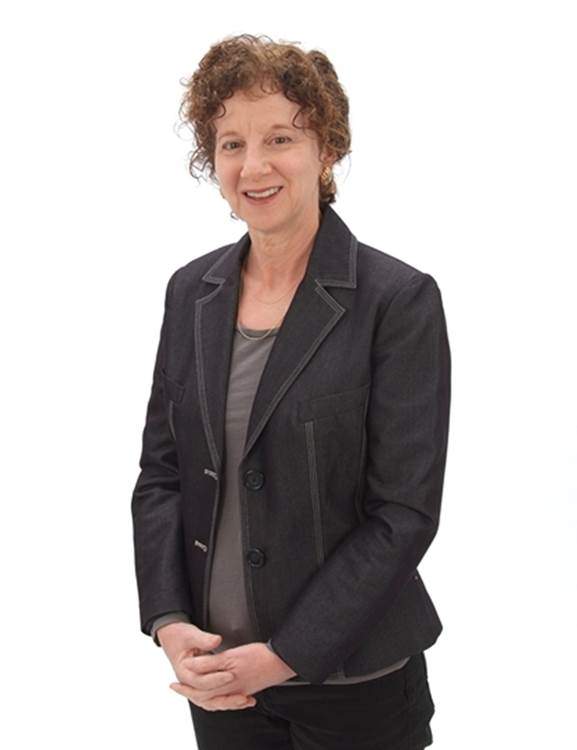 Tamara Sorell, Ph.D., BCES, Brown and Caldwell
Tamara Sorell, Ph.D., BCES, Brown and Caldwell
Session 2: Module 6
Tamara Sorell, PhD, BCES, has over 30 years of experience in the environmental consulting industry focusing on sampling and risk evaluation. She currently serves as the National Risk Assessment and Toxicology Practice Lead for Brown and Caldwell, primarily for Site Remediation and Investigation projects. Tamara has worked across the U.S under many State programs, as well as on CERLCA and RCRA sites. Tamara has been active in professional organizations and currently sits on the Society of Environmental Toxicology and Chemistry Career Development Leadership Committee; and works as a liaison to the Early Career Committee, supporting young professionals. Tamara has been working with ITRC since 2008. She served as a Co-Author and Internet-Based Trainer for both the Sediment Bioavailability and Sediment Remediation teams, and is an Interested Party on the 1,4-dioxane and Soil Background teams. Tamara has a bachelor's degree in Biochemical Sciences from Princeton University, and a Ph.D. in Pharmacology from Columbia University. She is a Board-Certified Environmental Scientist.
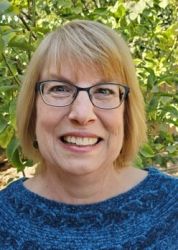 Karen DiBiasio, Ph.D., CalEPA/DTSC
Karen DiBiasio, Ph.D., CalEPA/DTSC
Session 2: Module 6
Dr. Karen Wernette DiBiasio has over 30 years of regulatory experience in toxicology and risk assessment. Dr. DiBiasio is a Staff Toxicologist for the State of California, California EPA, Department of Toxic Substances Control (DTSC) where she has worked since 1993. In the Human and Ecological Risk Office (HERO) at DTSC, she serves as a Technical Expert in Toxicology and Risk Assessment. She has a broad range of experience in human health multimedia risk assessment regulatory oversight throughout all stages from planning sampling (including ISM sampling) for use in risk assessment to post-remediation and long-term monitoring risk assessment for various types of CERCLA, Brownfields, and RCRA sites impacted by a diverse spectrum of chemical contaminants. Dr. DiBiasio earned her B.S. from Michigan State University in Microbiology and Public Health, M.P.H. from University of California at Berkeley (UC Berkeley) in Biomedical and Environmental Health Sciences with emphasis in Toxicology, and Ph.D. in Pharmacology & Toxicology from UC Davis. Karen has served on the ITRC ISM2 team since its inception.
 Hayley Brittingham, Neptune and Company
Hayley Brittingham, Neptune and Company
Session 2
Hayley Brittingham has worked for the environmental consulting industry in southern California since 1992. She is currently with Wood Environment & Infrastructure Solutions, Inc. (Wood) in San Diego, California, as an Associate Project Manager, managing and providing technical oversight for environmental restoration projects in California and Arizona, under the Comprehensive Environmental Response, Compensation, and Liability Act (CERCLA), the Resource Conservation and Recovery Act (RCRA) and Cleanup and Abatement Orders issued by the California Regional Water Quality Control Boards. She has directed investigations at former range sites, industrial and manufacturing facilities, former aerospace testing facilities, Superfund sites, and Brownfields for both the Department of Defense, private sector companies and real estate developers. She has managed multi-phase, long term projects from site inspections, preliminary assessments, remedial investigations and risk assessments, feasibility studies, and remedial design and implementation, all working with various agencies including Region 9 US EPA, California Department of Toxic Substances Control, California Regional Water Quality Control Boards, United States Fish and Wildlife Services, and California Department of Fish and Wildlife for the protection of human health and the environment. Ms. Zych has been working with the ITRC on the Incremental Sampling Methodology Update since 2018, where she has executed several ISM sampling designs at former range sites and facilities with historical use of arsenic-based herbicides. Michele earned a bachelor's degree in Geology from the California State Polytechnic University, Pomona, in 1992, and is a registered Professional Geologist in the State of California.
Moderator:
ITRC Training Program (itrc@itrcweb.org)
Webinar Slides and References:
Webinar Slides and References:
Additional Resources:
Thank you for participating in our webinar. We would like to receive any feedback you might have that would make this service more valuable.
Help & FAQs
Adobe Connect Resources
This seminar will be delivered through Adobe® Connect™ with streaming audio delivered through your computer speakers or headphones. We strongly encourage you to test your computer or mobile app prior to attending this seminar using the links below. Technical support on the day of the seminar will be very limited and subject to significant delays.
- Adobe® Connect™ Meeting Connection Diagnostic & Troubleshooting Tips
- Adobe® Connect™ Mobile Apps
- Adobe® Connect™ Visual Quick Start Guide (754KB/2pp/PDF)
Rehabilitation Act Notice for Reasonable Accommodation
It is EPA's policy to make reasonable accommodation to persons with disabilities wishing to participate in the agency's programs and activities, pursuant to the Rehabilitation Act of 1973, 29 U.S.C. 791. Any request for accommodation should be made to the ITRC Training Program at 202-266-4932 or itrc@itrcweb.org, preferably one week or more in advance of the seminar, so that EPA will have sufficient time to process the request. EPA would welcome specific recommendations from requestors specifying the nature or type of accommodation needed, such as closed captioning.
with any additional questions

